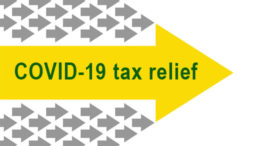Taxpayers now have more time to file their tax returns and pay any tax owed because of the coronavirus (COVID-19) pandemic. The Treasury Department and IRS announced that the federal income tax filing due date is automatically extended from April 15, 2020, to July 15, 2020.
Taxpayers can also defer making federal income tax payments, which are due on April 15, 2020, until July 15, 2020, without penalties and interest, regardless of the amount they owe. This deferment applies to all taxpayers, including individuals, trusts and estates, corporations and other non-corporate tax filers as well as those who pay self-employment tax. They can also defer their initial quarterly estimated federal income tax payments for the 2020 tax year (including any self-employment tax) from the normal April 15 deadline until July 15.
No forms to file
Taxpayers don’t need to file any additional forms to qualify for the automatic federal tax filing and payment relief to July 15. However, individual taxpayers who need additional time to file beyond the July 15 deadline, can request a filing extension by filing Form 4868. Businesses who need additional time must file Form 7004. Contact us if you need assistance filing these forms.
If you expect a refund
Of course, not everybody will owe the IRS when they file their 2019 tax returns. If you’re due a refund, you should file as soon as possible. The IRS has stated that despite the COVID-19 outbreak, most tax refunds are still being issued within 21 days.
New law passes, another on the way
On March 18, 2020, President Trump signed the “Families First Coronavirus Response Act,” which provides a wide variety of relief related to COVID-19. It includes free testing, waivers and modifications of Federal nutrition programs, employment-related protections and benefits, health programs and insurance coverage requirements, and related employer tax credits and tax exemptions.
If you’re an employee, you may be eligible for paid sick leave for COVID-19 related reasons. Here are the specifics, according to the IRS:
- An employee who is unable to work because of a need to care for an individual subject to quarantine, to care for a child whose school is closed or whose child care provider is unavailable, and/or the employee is experiencing substantially similar conditions as specified by the U.S. Department of Health and Human Services can receive two weeks (up to 80 hours) of paid sick leave at 2/3 the employee’s pay.
- An employee who is unable to work due to a need to care for a child whose school is closed, or child care provider is unavailable for reasons related to COVID-19, may in some instances receive up to an additional ten weeks of expanded paid family and medical leave at 2/3 the employee’s pay.
As of this writing, Congress was working on passing another bill that would provide additional relief, including checks that would be sent to Americans under certain income thresholds. We will keep you updated about any developments. In the meantime, please contact us with any questions or concerns about your tax or financial situation.
© 2020 Covenant CPA









